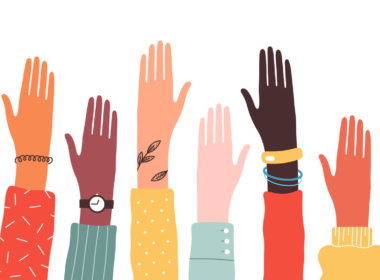Shaped by the digital age and motivated by purpose-driven work, young lawyers of today are set to introduce bold new ways of working that redefine the future of legal practice.
Family law practitioner Jessica Popple values purpose-driven work. The 30-year-old senior associate at Pippa Colman Family Law on the Sunshine Coast, who began her career in 2018, chose family law for its human dimension and the opportunity to make a difference to people’s lives. She is a former president of the Sunshine Coast Law Association, volunteers as a solicitor at the Suncoast Community Legal Service and supports several other community organisations.
Popple says careful boundaries help her juggle a busy schedule and look after her mental health. “I don’t have my work emails on my phone. I just refuse to check them on my phone, and that is to prevent burnout,” she says.
Her firm has implemented a 4.5-day week, which she says is “amazing”. Popple is in the office most days, preferring the company of her co-workers and two-screen set-up at her desk, but it’s a given that she sometimes works from home. “If I have a massive affidavit that I have to get done, I can be at home typing away on my laptop,” she says.
Popple is unsure about her future career plans, explaining that many of her peers are using law as a stepping stone to other careers, but is keen to work towards partnership at her current firm where the three female directors are wonderful mentors. “We’re lucky that we’re so supported as young female lawyers coming through the profession now,” she says.
Popple’s strong social values, progressive attitude to flexible work and technology, and preference for collaborative leadership are typical of her Gen Z roots. Born between 1995 and 2009, this is a generation shaped by the digital age, climate anxiety, COVID-19 and rising economic inequity.
In the workplace, an emerging cohort of Gen Z lawyers are at the vanguard of innovation, driving digital transformation, championing wellbeing and reshaping traditional hierarchies. Their arrival in the legal profession en masse, forming the largest generation in the workforce by 2035, is set to challenge stubborn, longstanding norms and introduce fresh ways of working.
Chasing purpose over profit
Almost one-fifth of Australia’s population belongs to Gen Z. The children of Gen X, sandwiched between their Millennial predecessors and Gen Alpha successors, they are the first generation to be truly global. With easy access to news and social media, Gen Z are highly attuned to social and environmental issues – and want to do something about them.
As such, this generation is more inclined to work with organisations that prioritise purpose over profit and are keen to be involved in initiatives that address social, environmental and ethical issues.
As in other professional services, this pattern is emerging in law. Gen Z will dominate new recruits in the legal profession for the next 20 years, and nearly half make choices about the work they do and the organisations they work for based on their personal beliefs, according to a 2024 International Bar Association report that examined Gen Z career attitudes. Deriving a sense of meaning from work was one of the top reasons to work for an organisation.
Social researcher and demographer Mark McCrindle, who heads up market research firm McCrindle, says this has significant implications for employers in law across private practice, in-house and government.
“We’re going to see an interest in not just earnings but pro bono work, interest work, working perhaps for not-for-profits, working in-house, not purely with a practice, and being prepared to be multi-career. For Gen Z, their identity isn’t just in their profession – it’s where they feel they can most steward their gifts, time and skills,” he says.
Charting a non-linear career
Gen Z are predicted to work in 18 jobs across six careers, according to research by McCrindle. “They’re redefining what success is. They’re looking for lifestyle and balance in life. They’re finding their identity and their definition of success beyond what they do for work,” McCrindle says.
Gone are the days of a linear career and work at the centre of life – even for ambitious, driven lawyers. “When we came through, it was just unquestioned that you centred work in your life,” says Madeleine Shaw, an executive and leadership coach and speaker, and former corporate and commercial lawyer.
“The main shift that I see in Gen Z workers is a decentring of work. The Gen Z lawyer will still take work really, really seriously and work hard and want to do well, but for the most part they don’t think it’s the only thing or the most important thing in their life.”
Hayate Yamada has just moved to Hobart for an in-house graduate position with energy provider TasNetworks. The 22-year-old, who graduated in 2024, says he hopes to do further university study and continue working in “critical industries” like energy and construction.
“I know a lot of lawyers, especially in my generation, who switch jobs a lot, even after one year,” he says. “Having a prestigious job title isn’t as important as what previous generations regarded it to be.”
McCrindle says mobility and lifelong learning are common Gen Z traits. “They are more prepared to move locations, but just as easily move sectors and move not from just private practice to in-house but make those moves multiple times. There’s far more of a risk tolerance when it comes to their career and their outlook.”
To attract and retain Gen Z talent, it’s clear that firms and corporate employers must be ready to adapt to, respect and accommodate their needs.
“The legal industry in general and law firms in particular should be especially understanding of those who wish to chart a non-traditional path and who may want to experience a number of different careers over the course of their lifetime,” says Dr Andrew Murray, deputy managing partner at Colin Biggers & Paisley. “This is the time from which that approach will become increasingly common, and we should embrace it.”
Leading digital transformation
The defining trait of Gen Z is arguably their digital connectedness as this generation has come of age in a world where technology is seamlessly integrated into daily life. They have never used an analogue camera, a CD player or a paper map; indeed, Gen Z has never known a time without the internet. “This is the first generation of lawyers to have been shaped in a world of social media and digital devices,” McCrindle says.
Stan Huang is a paralegal at the Public Defenders’ Office NSW who aspires to a career in criminal law after he finishes his studies at the College of Law later in the year. With the advent of AI, the 24-year-old believes Gen Z will play a key role in shaping and advancing its integration into the profession.
“We’re probably at the beginning of a lot of computer-aided law practices. If used properly, and if it’s appropriate, AI can save so much time and may replace some of the tasks that are done by paralegals,” he says, explaining that younger professionals are often relied upon to teach new technologies to older colleagues.
“One of the bigger issues is you still need someone to check the product, what comes out of AI, and that might still be an onerous task. Lawyers need to be aware that AI is going to help to make their work a lot more efficient, but you need to know what you’re looking for to use it properly.”
As digital natives, Gen Z lawyers are naturally adept at navigating rapidly evolving technological landscapes, Murray says. “This generation excels in agile, technology-driven environments, making it essential for law firms to integrate innovative tools such as AI and automation to enhance efficiency and streamline processes.”
Ann-Maree David, executive director at the College of Law, believes formalising the role of Gen Z lawyers in integrating new technology into firms and other workplaces leverages their unique skillset – and smooths over any awkwardness among older, less tech-savvy generations.
“I’m a big fan of reverse mentoring, where you bring in a junior who has great expertise or no fear of technology to help everyone learn. I know a lot of firms are teaming junior lawyers with very senior partners who don’t want to be seen to be learning in the open,” she says.
“As we become more exposed to AI and it becomes a run-of-the-mill tool in how we run our law firms, they’re going to need that help. They’re going to need people who speak the language and who can lead.”
She says law firms are also recruiting law graduates for specific roles in tech. “These aren’t legal practice roles – firms want younger lawyers for their expertise and passion for tech. That’s a dramatic change in a law firm.”
Prioritising flexibility and wellbeing
Because work is not at the centre of life for Gen Z, work-life balance is more than a nice-to-have – it’s an expectation. Research shows three in five (61 per cent) Gen Z workers see flexible working hours as extremely or very important.
David says the pandemic years, when many Gen Z lawyers were studying or beginning their careers, cemented hybrid work as the norm. “They don’t understand why anyone could be made to go to the office Monday to Friday, nine to five. They want flexibility and they want hybrid work. It’s second nature to them, and they do it very, very well.”
Like Popple, Huang and Yamada prefer to mostly work in the office where they can learn in-person from more experienced colleagues. “We need those in-person connections, being able to talk while looking at people and having eye contact,” Yamada says. “Communication is really important for young lawyers entering the profession.”
Huang agrees, explaining that working from home is more suited to deep-thinking tasks. “Sometimes it’s better to work from home if you can stay focused at home. It really depends on what you’re working on.”
This approach to flexible work is part of a broader focus on mental health and wellbeing – a major concern among Gen Z lawyers. The upheaval of the pandemic years left lingering scars; equally, Gen Z workers have a far more developed understanding of mental health concerns like anxiety, depression and burnout than older generations. They know that managing work-related stress benefits overall health and improves professional longevity.
“Gen Z aren’t wanting to do crazy hours like was perhaps accepted in the past if it means that there will be an impairment to their mental health,” McCrindle says. “It’s not that they’re not prepared to work hard – they are – but work needs to add to the flourishing of their life, rather than be a barrier or an impediment to it.”
Likewise, this is a generation that shuns hierarchical management structures, preferring to work in collaborative environments that encourage participation of all.
“We just did what we were told, because that was what you did. When you’d been there long enough, you got to tell other people what to do,” Shaw explains. “Gen Z don’t naturally think, ‘just because you’re the partner you get to tell me what to do – you have to tell me why’. Gen X and Millennials can think that sounds a bit cheeky.”
She says that while the collaborative nature of Gen Z can sometimes cause friction with older colleagues, it also serves as a valuable tool for bridging the generational gap.
“It’s about collaborating on a structure that works for both parties. Gen Z needs to check in with their partner or manager about what they’re working on. Similarly, the partner can ask the Gen Z: How would you like to do it? What’s your preference for how and when you work?
“This is how you achieve success.”




